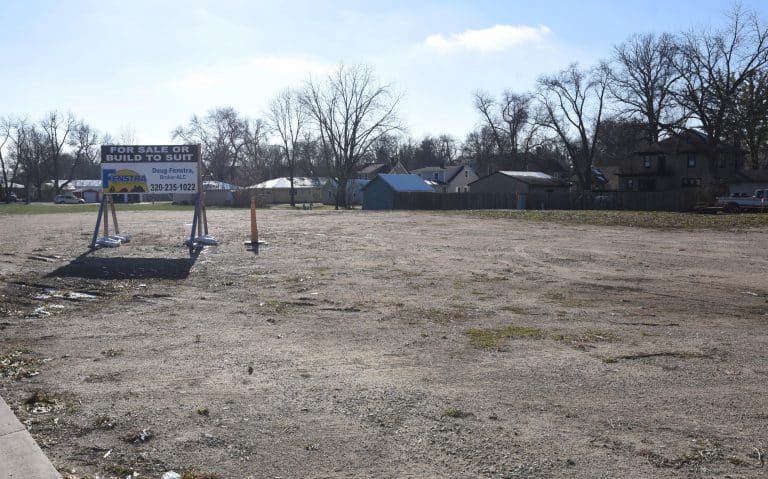WILLMAR—The Willmar City Council on Monday night approved a new redevelopment tax increment financing district along First Street South that will assist a developer in completing a retail construction project on vacant land on one of Willmar’s main thoroughfares.
This was after lengthy discussion at several meetings, along with tabling the decision at the Oct. 23 meeting, because there were concerns that such assistance gives unfair advantage to certain developers over others.
The vote to approve the district was 7-1, with Councilor Ron Christianson casting the lone opposing vote.
The approved TIF district, both the east and west sides of First Street South between Minnesota and Monongalia Avenues, will allow developers to use the increased tax value—after improvements are made—to help pay for eligible development costs, including land acquisition and site preparation.
The taxing jurisdictions—the city, Kandiyohi County and Willmar Public Schools—will continue to collect taxes on the current land value.
Blake Graves, the developer interested in the land on the west side of First Street, applied for TIF assistance to help with the high cost of the land.
“We are coming to you as a last resort. In order for this project to get going, in order for this project to thrive and get off the ground, it needs your help. It needs your help in tax increment financing, to get it back to a level playing field of raw land on First Street,” Graves said.
The building demolition and site preparation greatly increased the value of that land to approximately $400,000, much higher than what the county assessor would usually value an empty lot, Planning and Development Director Bruce Peterson said.
“The site preparation costs to prepare it for development are triple to quadruple what the estimated market value is by the county assessor. It is a significant encumbrance on that property,” Peterson said.
The overall redevelopment tax increment financing district, called Legacy on First, is split into three phases. Graves’ development project on the west side is phases one and two. The area is currently empty lots but at one point had structures on it, including a Sinclair gas station.
The first phase will be the construction of a 7,600-square-foot restaurant/retail/office facility, along with parking improvements, new access, lighting and storm water controls. The second phase is the completion of another 3,000 square feet of commercial space. These phases will receive tax increment financing for 15 years.
The east side of the district created by the city will have TIF available for 25 years, the maximum allowed under state law. This gives the city some flexibility to work with possible developers. Currently, the site has substandard structures on it, Peterson said, and there is no development plan.
Graves said it has always been a dream of his family to move their Dominos pizza restaurant to First Street from its current location on Litchfield Avenue.
“First Street has become that pinnacle area where you do business, that is where you thrive,” Graves said.
While he has looked at available vacancies in retail buildings on First Street in Willmar, including the Kandi Mall and other locations, none fit his needs or those of possible new businesses he has been in contact with as a developer.
“There are more things you look at, rather than saying there is an opening, can I put a business there, especially if you want to be there for the long term,” Graves said.
There were concerns that approving the TIF district would be the same as guaranteeing a profit for the development, but Graves does not agree.
“This is never going to guarantee a profit. Tax increment financing has never been put into place to guarantee anyone a profit,” Graves said.
Douglas Fenstra, a commercial real estate broker who has marketed the property in question, along with other vacant properties in town, said the tax increment financing district will help develop both sides of the property and perhaps make it possible for more local businesses to have a chance to start a business on First Street.
“It will allow the local people to participate on First Street,” Fenstra said, adding most of the development on First Street is from businesses with large national or international presence and money. “I would say this specific TIF district is a good district and is very necessary.”
Even though it might be 15 years before the taxes collected on the land increase, Graves believes the development will bring jobs and increased business to that area of First Street.
“How much benefit, how much tax dollars does that bring to the community versus not having that. And I think that is the most impactful thing to look at,” Graves said.
Peterson said that the TIF district is not being used to bring in a certain type of new business, whether it’s restaurants or retail. Instead it is being used to clean up a blighted area of Willmar.
“TIF is being used to cover the additional costs of redevelopment and the elimination of the blight,” Peterson said.
West Central Tribune by Shelby Lindrud

